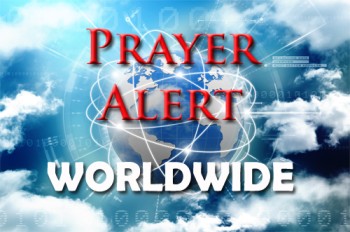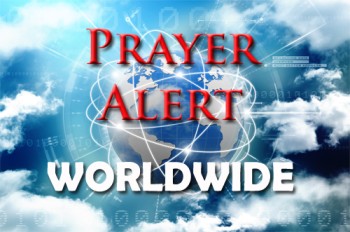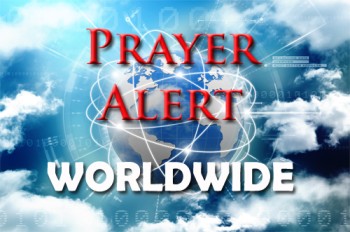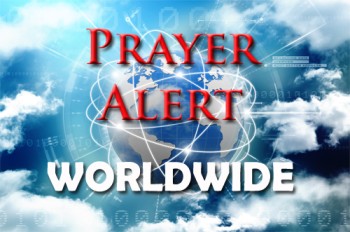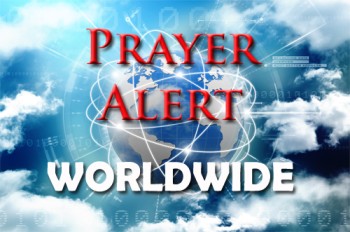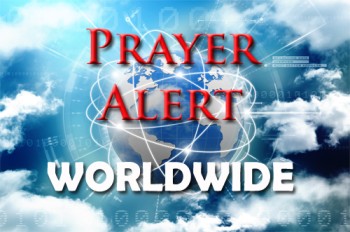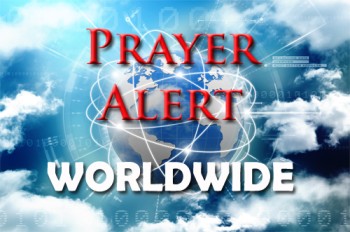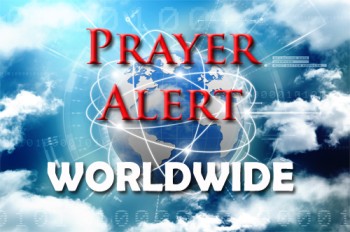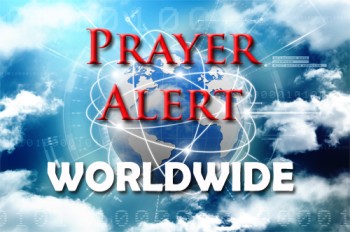Displaying items by tag: Africa
Kenya: doomsday cult
Children were the first to be starved to death in the final days of a Christian doomsday cult in the vast Shakahola farm, near Malindi. Police investigating mass suicide have exhumed 201 bodies so far. A former deputy preacher of the cult, Titus Katana, said children were killed first, ‘ordered to fast in the sun so they would die faster.’ Women and men were next in the suicide plan. Katana, who is helping police with the investigation, described the brutal treatment of children who were shut in huts for five days without food or water: ‘Then they wrapped them in blankets and buried them, even the ones still breathing.’ Cult followers were told they would reach heaven faster if they starved to death. Official autopsies found signs of starvation, suffocation and beatings. Over 600 members of the cult are still missing.
DRC: ‘we don’t want more people to die’
Tearfund is calling on the international community to act fast to save lives after flash floods killed over 400 and left thousands homeless in the Democratic Republic of Congo (DRC). Torrential rain triggered landslides and caused four rivers to flood, hindering access routes and making it harder for aid agencies to reach the region. The death toll will rise without urgent intervention. It took rescuers two days to find a way to reach a devastated area because landslides and collapsed bridges blocked the road they wanted to use. Finally, they had to use the lake and a boat. Churches, schools and over 2,000 homes are destroyed, and more than a thousand people are missing. The fear is that the number of missing people will turn into deaths. It is a time of mourning , and action is needed to bring clean water, toilets, sanitation facilities and food.
Sudan: prayer needs
Sudanese passports are locked inside European embassies. Spain's foreign ministry urged people to obtain travel documents from the Sudanese authorities. Mohamed was waiting for his visa for a Spanish holiday when war erupted. He phoned the Spanish embassy to retrieve his passport. The receptionist asked, ‘Are you Sudanese or Spanish?' He said he was Sudanese, she immediately hung up. Mr Badawi works for a French company. His passport was at the French embassy and they refused to return it. There are many more trapped. 15.8 million people already needed humanitarian assistance before the conflict. Now the situation is dire. Water, food, fuel, and medical supplies are scarce. The UN and partners are working to reboot the humanitarian response. Also the toll on children and young people’s mental health is profound. Additionally, the cost of transportation out of the worst-hit areas has risen exponentially, leaving the most vulnerable unable to move to safer areas.
Sudan: hospitals horror
Sudan’s healthcare system is paralysed. 39 out of 59 hospitals are closed. Those still working are running out of blood, medical equipment, and supplies. Doctor Abaro said closed hospitals must remain closed because medical supplies have run out and oxygen stations have been destroyed. It’s not safe to go into the streets, so medical staff and medical supplies can’t reach hospitals. Electricity, water and food are running low, and there are restrictions on ambulance movements. The situation is difficult. ‘The worst thing was seeing injured men and chronic patients struggling to survive,’ said Doctor Mustafa. ‘They were already vulnerable, and we felt paralysed trying to help them.’ A former foreign minister sheltering in Khartoum said, ‘We’ve had no electricity for 24 hours. We’ve had no water for six days, medical teams are targeted, and there are rotting bodies of youths in the streets’.
Libya: warlord involved in Sudan war
Libyan warlord Haftar controls eastern parts of Libya and, fuelled by outside interests, could worsen Sudan’s conflict. Analysts describe a ‘nightmare scenario’ of multiple regional powers fighting a proxy war in Sudan, endangering over 45 million people. Recently, Haftar passed on crucial intelligence to Sudanese general Hemedti, detained his enemies, increased deliveries of fuel, and trained hundreds of RSF fighters in the urban warfare tactics needed in Khartoum and other cities. Hemedti and Haftar have also collaborated on smuggling operations of valuable illicit cargo between the two countries. Currently, neither Haftar nor his sponsors, UAE and Russia, will commit entirely to one side in a conflict whose outcome remains unclear. Also, he does not want to alienate Egyptian supporters who back Sudan’s General Burhan. One NLA militia commander said his force was ‘ready to support Hemedti but is still monitoring the unfolding situation in Sudan’.
Sudan: tens of thousands trapped
So far, two thousand people from fifty countries have crossed the Red Sea to the port of Jeddah, while tens of thousands of Sudanese are trying to reach Chad, Egypt, Ethiopia, and South Sudan. Those remaining in Khartoum homes are running out of supplies. ‘If this war doesn't stop, there is no way to stay here.’ said a nurse. Lakshmi from Massachusetts was hitchhiking south. He said, ‘For the 16,000 Americans in Sudan, the race to evacuate diplomats has left them to fend for themselves. There are at least 158 Australian families registered in Sudan, but Australia has no embassy, so they have no consular services to help. See Many Britons scrambled to get to an airfield near Khartoum and fly back to the UK via Cyprus before the ceasefire ended.
Nigeria: nothing short of a massacre
In Kaduna state, Fulani militiamen killed 33 Christians in the predominantly Christian Runji village on 16 April and burned down half of the village. ‘Attackers in their numbers maimed and burned mostly women and children’, a press statement recorded. Locals have long believed that the government is capable and able to stop this evil - but they are not ready and willing to stop it. Nigeria is the leading country where Christians are killed for their faith (5,014 martyrs in 2022), and led the world in Christians abducted (4,726), sexually assaulted, harassed, forcibly married, physically or mentally abused. It had the most homes and businesses attacked for faith-based reasons. Being a Christian automatically puts a target on one's back. ‘Please pray for us’, said resident Mugu Bako. Rev Jacob Kwashi presided over their funerals, bemoaning the government's callous response to increasingly violent attacks against Christians. See
Sudan: battle for control
Plumes of smoke fill Khartoum’s sky as Sudan’s military and paramilitary battle to control Sudan. Fighting that erupted on 15 April has killed hundreds, wounded many more, and damaged homes, hospitals, airport and residential water supplies. The power struggle is between General Burhan, commander of the armed forces, and General Dagalo, head of Rapid Support Forces. They were allies and orchestrated the 2021 military coup that derailed Sudan’s transition to democracy. Now they are killing each other in the streets, and the conflict could lead to Sudan’s collapse. Pray that this will not happen and for a return to dialogue. The region is already grappling with ongoing conflicts in Libya, CAR, South Sudan, Ethiopia, and Chad. All of them are theatres of ongoing armed conflict and all share borders with Sudan. Their conflicts have killed tens of thousands and displaced millions more. If the situation in Sudan worsens, all the Horn of Africa will suffer. See also
Angola: landmines scourge
People are still dying or being maimed by one of the millions of landmines or unexploded ordnance left from the war that ended 20+ years ago. ‘I don't want my daughter to be the next landmine victim’, said Helena from eastern Angola. The 25-year-old mother has joined the ‘sapadora’ - Angolan women risking their lives daily to clear the scourge of leftover landmines. A national survey by the Angolan government in 2014 found that about 88,000 people were living with injuries caused by landmines. Organisations like the International Campaign to Ban Landmines say the true toll may be higher still, as there is no on-going official monitoring of casualties. Everyone in Angola knows someone who is injured. 7,300 hectares still need clearing. ‘We need to stop this cycle for the good of our people and our nation’, said Helena.
Jihadists release kidnapped missionary
After more than six years in captivity in West Africa, longtime Christian aid worker Jeff Woodke has been released. His wife Els was told that he was in good condition and expressed her profound thanks to the many people in governments and others around the world who have worked so hard to see this result and praised God for answering the prayers of Christians everywhere who have prayed for this outcome. No ransom or other conditions were part of the release.
